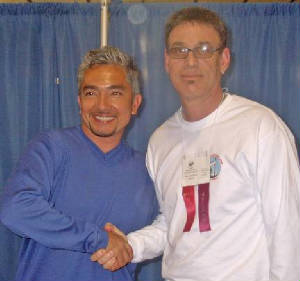Dogs cannot communicate like humans. It’s why it’s so important for us to learn how to let dogs be dogs. One way that we can do this is to learn when, and why, we should not punish growling. There’s a tendency for dog owners to punish a dog when it growls, and that can be a problem – one with potentially harmful, and in some cases deadly consequences.
Why Dogs Growl
Dogs growl to express discomfort, fear, anxiety, or distress in certain situations. It is a warning sign indicating that the dog is not at ease with the current scenario or a specific stimulus. Growling serves as a non-violent warning that can prevent a situation from escalating into more aggressive behavior, such as biting. It's a dog's way of saying, "Please stop or back away."
What Happens When We Punish a Dog for Growling?
Punishing a dog for growling can teach the dog to suppress this warning signal. Dogs growl to say “please leave me alone so I don’t have to do anything else.” Without growling as a preliminary indicator of discomfort, a dog might resort to biting or more aggressive behavior immediately and without a clear warning. This means that, instead of growling, a dog that is feeling, scared, anxious, or uncomfortable may just go straight to biting. If you also have a dog that has a strong jaw, that can be particularly dangerous.
We want dogs to growl. It tells other dogs and people to walk away. Punishing a dog for growling teaches them they can skip that step. It may even make the situation worse, since punishment can exacerbate the dog's underlying anxiety or fear. This can lead to heightened stress responses in similar situations in the future, potentially making the dog more reactive or unpredictable.
What Should You Do When a Dog Growls?
We need to rethink the idea that growling is bad. It is an important way for dogs to communicate, and not a bad behavior that we should teach the dog not to do.
However, there is no denying that sometimes, growling can be scary. Instead of punishment, identify and address the root cause of the dog's discomfort. Remove the dog from the stressful situation or gradually desensitize and counter-condition the dog to the stimulus causing the discomfort.
Utilize positive reinforcement techniques to build the dog’s confidence and teach alternative behaviors in situations that previously triggered growling. If a dog frequently growls or shows signs of aggression, consulting with a professional dog trainer like Marc Goldberg can help. We can provide tailored advice and training strategies based on the dog's specific behavior and needs.
Recognizing and respecting a dog's growl as a form of communication is crucial in responsible dog ownership and training. Rather than punishing the dog, understanding the message behind the growl and addressing the underlying issues can lead to a healthier and safer environment for both the dog and its human companions. It’s about creating a line of open communication and trust, ensuring that the dog feels understood and secure.





